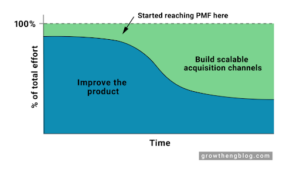Making decisions based on data is no longer the way of the future. It’s essential for virtually every type of organization. At the heart of data-driven decision-making, however, is a need for reliable, accurate, and organized data.
As any organization grows, the data it collects can very quickly spin out of control. With inputs coming from multiple teams, customers, and apps – from marketing, sales, engineering – keeping data consistent and accessible without a solid strategy in place can become nearly impossible.
That’s why data governance is essential for companies of all sizes.

Data governance aims to ensure that, across an organization, data is accurate, well-organized, and properly secured.
In this post, you’ll learn:
-
How a data governance strategy has a significant impact on business outcomes and decision-making
-
How Mozart Data makes data governance easier for growing companies
What is data governance and how do teams implement it?
Data governance is an overarching term that encompasses strategies, processes, and standards that are designed to ensure the accuracy and availability of data across an organization. Data governance strategies can look quite different from one organization to the next, but they all have the goal of making sure the company’s data is clean, reliable, and secure.
A data governance strategy will typically include developing policies and standards around how and by whom data is accessed, used, and shared. Further, procedures must be put into place that verify that these policies and standards are actually being followed.
At a large organization, there may be an entire team dedicated to implementing a data governance strategy. Although smaller organizations will rarely have the resources for such a team, that doesn’t mean that data governance should fall by the wayside. Companies in growth mode can see significant benefit from implementing a data governance strategy now that can grow along with them and their customer base.
In the next section, you’ll see examples of exactly how data governance – or a lack thereof – can affect business operations.
Data governance and business outcomes
The important thing to remember is that data governance isn’t simply a “best practice” that’s good to implement if you have the time. A data governance strategy can have very real, measurable impacts on business outcomes.
Accuracy
When a company is dependent on its incoming data to make critical business decisions, the more accurate that data is, the more effective those decisions will be. Because data governance policies work to ensure data is consistent across departments, the available data picture is more complete and therefore more accurate.
Something as simple, for example, as naming conventions can have a detrimental impact on the integrity of an organization’s data when not used properly. A data governance strategy that has a naming convention policy and audit structure in place will ensure each specific type of data is named the same way and therefore is properly taken into account when reports are run.
Organization
Each new data source means a new chance for data to become muddied and messy. Clean data means it becomes much easier for reporting and tracking to be automated. Whereas many companies may rely on manual inputs in the form of spreadsheets to create essential reports, that introduces many opportunities for errors.
Data governance ensures consistency across departments. This means data, properly organized and tagged, can easily flow into automated reports and save teams a great deal of time and energy that would have been spent looking for user-generated errors.
Accessibility
A data governance strategy can also go a long way toward making data more accessible to the people in the organization who need to use it for decision-making purposes. When data is reliable and clean, creating reports and tables that are designed around that particular data set’s users is much more efficient. Because data visualizations can be targeted so specifically, that data becomes instantly easier to understand and therefore easier to leverage. When data is correctly tagged, it’s much easier to grant access to just the specific data that one team needs.
For instance, your marketing team may not need every piece of customer data in order to make data-driven decisions. A tailored marketing data set protects the personally identifiable information (PII) of your customers by only sharing what’s necessary. Without data governance strategies in place, teams can end up with more data than they actually need, which puts your customer’s privacy and your organization at risk.
Security and compliance
According to one recent report from market research firm Corinium, 94% of data, privacy, and security professionals say compliance with data privacy regulations is a top priority for their organization. Data governance is one key way to make compliance easier and more consistent.
The use case for this is clear: governmental regulations like GDPR allow users to request that organizations delete their personal data at any time. When user data is stored haphazardly, with no system in place for organization or security, the process of deleting an individual user’s data can be extremely time-consuming. Further, ensuring data is actually gone and being able to prove it can be nearly impossible. By leveraging data governance policies, companies can make the collection, storage, and purging of customer data simple and trackable so compliance is never in question.
How Mozart Data helps with data governance
If you’re a smaller organization, the idea of enacting a data governance strategy may seem well out of reach. When everyone on the team is already wearing multiple hats it takes a lot to justify adding another to the heap. But the reality is you don’t have to have a dedicated data governance team to make significant headway on getting your data into shape.
Mozart Data’s modern data platform offers tools that make effective data governance possible for organizations of all sizes. Our data warehouse makes it easy to centralize data from multiple sources with just a few clicks and no coding, getting you more accurate, cleaner data right away. Data cataloging, data observability, and data reliability tooling makes it easier to take action on your data governance strategy. Plus, our expert data analysts are here to guide you the whole way, so you can save on hiring data engineers.
Schedule a demo with us to learn how our platform gives you a clear path toward data governance practices that will make your data more secure and usable.


